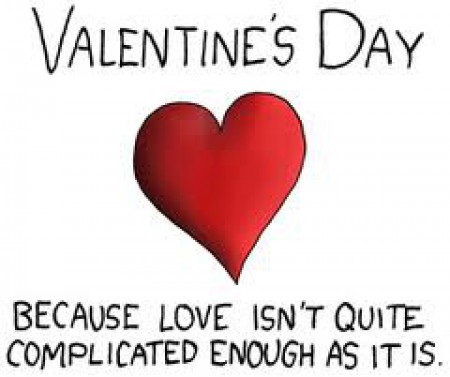Dating sites may not have the formula for love

"To date, there is no compelling evidence any online dating matching algorithm actually works."
Those words from Eli Finkel, associate professor of social psychology at the Northwestern University in Chicago, are likely to ring true with any online daters still to find love on the web.
Yet with Valentine's Day often bringing out the worst snuggly excesses of loved-up couples, both in public and on websites like Facebook, singletons may well find themselves tempted to give one of the many online dating sites a try in an attempt to find The One.
However, while sites such as Match.com claim their algorithms can help generate genuine potential suitors, Mr Finkel, writing in a recent paper in the Psychological Science in the Public Interest, argued such boasts need more rigorous testing before they can ever be taken seriously.
"If dating sites want to claim that their matching algorithm is scientifically valid, they need to adhere to the standards of science, which is something they have uniformly failed to do," he wrote.
"In fact, our report concludes that it is unlikely that their algorithms can work, even in principle, given the limitations of the sorts of matching procedures that these sites use."
Despite this assessment, dating sites can claim many success stories - plenty of couples have got together having met online.
Match.com says it is responsible for a third of all online relationships that led to marriage, according to a YouGov survey published last December.
The site's UK managing director Karl Gregory told the BBC part of this success is due to users browsing the site and making connections, but he also said its algorithms offer good recommendations for people who may not otherwise make contact.
"We know there is often a difference between what people say they're looking for in a partner and the members they might actually interact with," he explained.
"By learning from people's behaviour on the site, we're able to show them a wider variety of matches. Eventually, what you do becomes as important as what you say."
Wandering eyesEven if you do decide it is worth letting an algorithm guide your heart, there is another issue with dating sites that is coming under scrutiny.
A recent study conducted in a San Francisco café by digital engagement firm Answerlab, using eyeball tracking technology from Swedish company Tobii, found that men and women have very different agendas when they browse online profiles.
A small but indicative survey of 39 dating site users, 21 male and 18 female, found that the men spent 65% longer looking at pictures of prospective dates than females.
Some suggest dating sites should be tailored to look different for men and women
However, the females surveyed were far more interested in the rest of the information on a page, spending 50% longer reading through the text on profile pages.
While this is perhaps unsurprising, Tobii's North American manager Barbara Barclay said the data showed dating sites are missing a trick by not optimising profile layouts for these very different browsing styles.
"Dating sites could do a lot better by changing their navigations to improve the experience of users on these sites," she said.
"This information [from the survey] could help people to re-design their sites."
Answerlabs chief executive Amy Bruckner concurred with this assessment, adding that it would help let users offer a more tailored viewing experience.
"Dating is an incredibly personal experience; online dating sites would be even more successful if they enabled the overall experience to be more personal."
One site already aware of this issue is mysinglefriend.com, founded by TV presenter Sarah Beeny.
She explained to the BBC that the site has already considered tailoring profiles to suit the differences of men and women, although has not implemented any changes to date.
"Our research found that if we could make the site more relevant and even potentially change the colours, then this would lead to a better user experience," she said.
"The content of the profiles is still fairly similar though as this does help to keep things consistent - however some criteria are definitely more important to men than women and vice-versa."
For many, though, the fact dating sites can't guarantee you'll meet the love of your life is irrelevant, as some believe the internet offers a far better chance of doing so than trawling bars or clubs.
Sarah Beeny said online dating is no longer about "sad, lonely people"
"The web is a gateway to more: more time, more convenience, more choice and yes, potentially, more social interaction," Ms Beeny said.
"There are many reasons why dating online is growing at such a phenomenal rate, but the main one is that it no longer carries the stigma of being for 'sad, lonely people'. It has now become an obvious and viable choice."
In fact as Harry Reis, professor of psychology at the University of Rochester, notes in the same paper co-authored with Mr Finkel, the online world is actually a very natural place for people to meet, regardless of algorithms and profile layouts.
"The internet holds great promise for helping adults form healthy and supportive romantic partnerships, and those relationships are one of the best predictors of emotional and physical health."
http://www.bbc.co.uk/news/technology-17017963










Leave a Reply
Your email address will not be published. Required fields are marked *